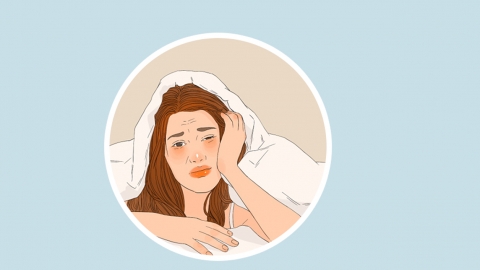What are the characteristics of hypertension caused by anxiety?
Anxiety-induced hypertension is characterized by elevated blood pressure directly triggered by anxiety, overlapping symptoms with physical manifestations of anxiety, irregular blood pressure fluctuations without a fixed pattern, the greater importance of emotional intervention compared to medication alone, and long-term disruption of blood pressure regulation mechanisms. Managing emotions effectively is essential for improving blood pressure control. If blood pressure remains persistently high and anxiety cannot be relieved independently, prompt medical consultation is recommended.
1. Blood pressure elevation directly induced by anxiety: Anxiety activates the sympathetic nervous system, increasing secretion of hormones such as adrenaline, which causes blood vessel constriction and increased heart rate, leading to elevated blood pressure. This occurs in the absence of other identifiable organic causes.

2. Overlapping symptoms with physical manifestations of anxiety: In addition to high blood pressure, individuals often experience restlessness, insomnia, and difficulty concentrating—typical signs of anxiety—that intertwine with hypertension-related symptoms such as headache and palpitations, intensifying overall discomfort.
3. Irregular timing of blood pressure fluctuations: Unlike primary hypertension, which commonly shows a morning surge, anxiety-induced blood pressure spikes can occur at any time during episodes of anxiety, such as sudden stress or emotional tension, lacking a consistent circadian rhythm.
4. Emotional intervention is more critical than medication alone: Relying solely on antihypertensive drugs is often insufficient for stable blood pressure control. Significant reductions in blood pressure can be achieved through psychological counseling and relaxation training to alleviate anxiety. Antihypertensive medications should be combined with emotional regulation strategies for optimal results.
5. Long-term risk of disrupted blood pressure regulation: Prolonged and repeated anxiety continuously stimulates the sympathetic nervous system, impairing the body’s normal blood pressure regulatory balance. This may transform transient blood pressure elevations into sustained hypertension, increasing the risk of developing chronic hypertension.
In daily life, individuals can help stabilize blood pressure by cultivating hobbies to divert attention from anxiety, communicating with family and friends to release emotions, maintaining a comfortable indoor environment, adhering to a regular sleep schedule, and avoiding excessive fatigue.





